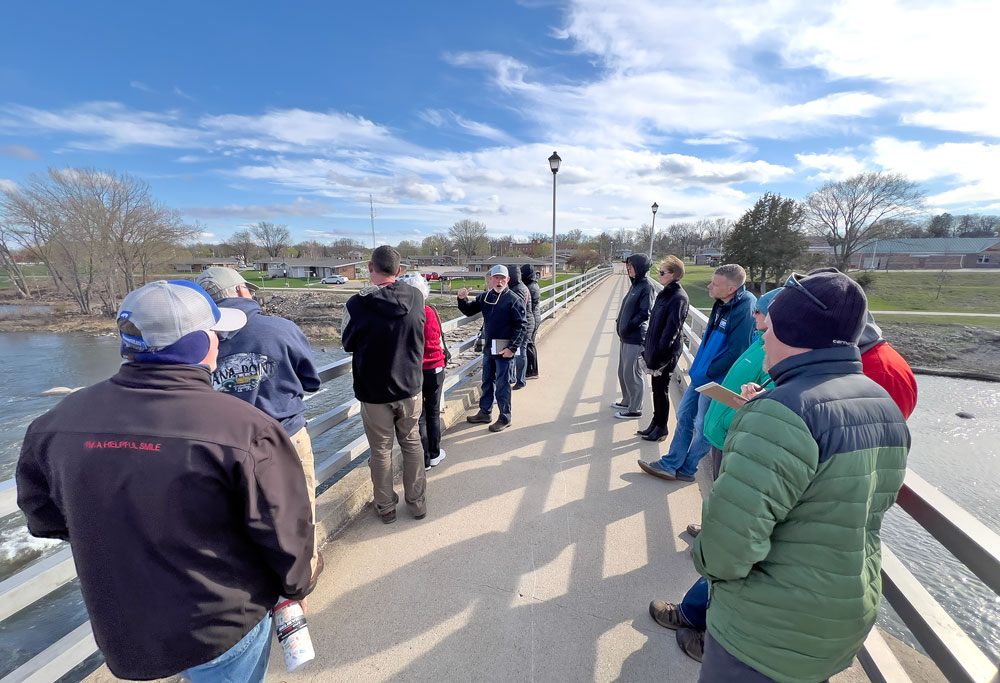Biden takeaways: Clinton gets a boost from VP’s decision
Biden takeaways: Clinton gets a boost from VP’s decision
Ken Thomas
The Associated Press
Vice President Joe Biden’s decision not to run for president clears a wider path for Hillary Rodham Clinton by removing the last major unknown in the Democratic contest to succeed President Barack Obama.
Clinton has remained the front-runner for the nomination since launching her bid last spring. But she has struggled at times to present a coherent rationale for her candidacy against an insurgent challenge from Vermont independent Sen. Bernie Sanders, questions over her use of a private email system at the State Department and some Democrats seeking an authentic, straight-talking alternative.
For the doubters, Biden offered a fallback option. Now, with about 100 days before February’s Iowa caucuses, the Democratic race essentially comes down to a contest between Clinton and Sanders.
“This is the race that we have,” said Democratic strategist Rodell Mollineau.
Takeaways from Biden’s decision:
A BOON FOR CLINTON
While Biden’s two previous presidential campaigns never took off, he surely would have had greater success running as the sitting vice president — and likely would have taken primary votes away from Clinton.
Without Biden in the race, Clinton can more easily present herself as the heir to Obama’s legacy and the candidate in the best position to preserve the president’s health care law and pursuit of immigration reform. His decision also likely solidifies Clinton’s position with the diverse coalition of black, Hispanic, female and gay voters who fueled Obama’s winning campaigns.
Some reluctant Democratic donors, too, are now likely to become part of the Clinton fold. More than 80 percent of donors who gave at least $200 to Obama’s re-election campaign had not contributed to Clinton or any other Democratic presidential candidate as of Sept. 30, according to an analysis of Federal Election Commission records by Crowdpac.com, a nonpartisan political research company.
TWO-CANDIDATE RACE
Barring an unexpected rise by former Maryland Gov.
Martin O’Malley, this is now a two-person race.
Clinton and Sanders are building strong grassroots organizations in Iowa, which will be on display at Saturday’s annual Jefferson-Jackson party dinner in Des Moines.
Clinton won New Hampshire’s primary in 2008, but as a Vermont senator, Sanders is helped by his proximity to the independent-minded state that has supported neighbors before — John Kerry in 2004, Paul Tsongas in 1992, Michael Dukakis in 1988.
But after New Hampshire, Clinton has an advantage in South Carolina and Nevada, where minority voters are critical, and a slate of Southern-heavy contests on March 1.
NO AWKWARDNESS AT THE WHITE HOUSE
When Obama and Clinton sat down with “60 Minutes” for a joint interview in early 2013, the tableau suggested the president saw his secretary of state as his most likely successor. He remarked on their “great collaboration over the last four years” and said, “I’m going to miss her.”
At campaign stops, Clinton credits Obama’s handling of the economy during the dark days of 2009 and has signaled she would build upon his agenda. If Biden had entered the race, it would have put the White House in an awkward position of trying to stay neutral while Clinton ran against Obama’s No. 2.
Still, campaign or not, Biden made clear that he won’t “be silent.” In his Rose Garden speech, Biden said Democrats would be making a “tragic mistake” if they walked away from the Obama legacy.
“Democrats should not only defend this record and protect this record. They should run on the record,” Biden said.
YOU CAN’T WAIT
Bill Clinton announced his first presidential campaign on Oct. 3, 1991. Back then, it wasn’t too late a start.
But modern presidential campaigns require months of preparation, fundraising and organization-building before any caucuses or primaries.
Biden acknowledged as much when he said from the Rose Garden, “Unfortunately, I believe we’re out of time.”
If he had run, he would have faced formidable obstacles in raising money and building a campaign. The same was true for then-Gov. Rick Perry, the Texas Republican who waited until mid-August 2011 to enter the 2012 race, or former Tennessee Sen.
Fred Thompson, who joined the 2008 field in September 2007. Both flamed out. In presidential politics, there’s no time to waste.
CLINTON OR BUST?
It may have been this way even if Biden had gotten into the race, but now, there’s just one option for the Democratic party’s establishment: Clinton. Only about half of Democrats in the latest AP-GfK poll believe Sanders could win a general election, and the party’s leaders will openly worry if Sanders pulls off upsets in Iowa and New Hampshire.
Biden’s departure from the race leaves no obvious Plan B if Clinton’s campaign implodes or investigations into her email practices turn into a major liability.
Meanwhile, Republicans are eager for a race against Clinton, a campaign for which they’ve spent years preparing.
Biden’s announcement, noted Republican National Committee Chairman Reince Priebus, “is a major blow for Democrats, who now will almost certainly be saddled with their unpopular and scandal plagued front-runner Hillary Clinton.”
Follow Ken Thomas on Twitter: https://twitter.com/ KThomasDC







Social Share